- Home
- Jeremy Robinson
Pulse Page 4
Pulse Read online
Page 4
The team dove to the snow, knowing they would disappear from view. “I’ve got this,” Knight said, as he crawled up behind the snowmobile, using the vehicle and its lone, dead occupant as cover. He unslung his PSG-1 semiautomatic sniper rifle and took aim at the Sno-Cat. He knew the vehicle wasn’t meant for a firefight, so it most likely didn’t have bulletproof glass. Looking through the sight he found the driver’s head. He could see the man shouting at the others.
Knight slowly squeezed the trigger and a single round burst from the weapon, its retort echoing across the open expanse and drowning out the popping AK-47s. He watched through the scope as the windshield held its own, denting inward slightly where the round struck. Bulletproof glass. Damn.
Knight took aim again, preparing to unleash a semiautomatic barrage of sniper rounds. The Sno-Cat was moving and jostling on the ice, which made the shot even more difficult, but few people on the planet were his equal with a sniper rifle. He held his breath and squeezed off fifteen rounds in rapid succession. The windshield became awash with white pockmarks, but the one in the middle grew wide as eight of the fifteen rounds found their mark, striking the same place as the first round and punching a hole in the bulletproof glass. Three rounds in all made it through the window, but only the first made contact. There wasn’t a head left for the second two to strike.
Even without the driver, the Sno-Cat continued toward them. More than that, without the driver, the Sno-Cat wouldn’t stop once it reached them. AK-47 fire continued to pepper the snow around the group, but as is so often the case with terror groups, they had atrocious aim and little self-control.
Rook looked down the sight of his assault rifle. “I have to do everything I s’pose. Bend over, ladies, here it comes.” A dull pop signified the launching of a grenade. The two men on top saw it coming and leaped from the roof of the Cat. The others took the grenade’s full force as it ripped through the Cat and turned their bodies into little more than Campbell’s Chunky Soup.
The two survivors clambered to their feet, clutching their AK-47s, and beat a hasty retreat back toward the island’s rocky shoreline in search of cover.
“My turn,” Queen said.
As the two men made a beeline for the smoldering complex, they fired aimlessly over their shoulders, peppering the ice behind them and posing no real threat to the team.
Queen heaved the dead man off the snowmobile. A sheet of frozen blood lifted away with his body and shattered when he fell to the ice. She took his seat and said, “You’d think with a big secret training facility, these guys would be better shots.”
“Blowing yourself up doesn’t take much aim,” King said.
She revved the snowmobile’s engine. “Right.” The snowmobile burst forward. She brought it around in a wide turn, building speed, and then was off like a bullet, streaking toward the fleeing men.
“Hey, King,” Knight said, holding up a white Heckler & Koch UMP submachine gun.
King sighed. It was Queen’s weapon. And he knew she hadn’t forgotten it. The woman was the smallest member of the team, but like the savage wolverine—a terrier-sized weasel capable of taking down a moose—what she lacked in size she made up for in ferocity and brute strength. It wasn’t always easy to see past her feminine face, but the woman was built like a powerhouse, so much so that no one on the team dared arm-wrestle her. It wasn’t certain she’d win, but if she did, the loser would be cursed by a lifetime of taunting from the others.
Queen closed in on her targets. The men, now out of ammo, simply ran for their lives. If the men had conserved their ammo, she would be dead, but the men had as little sense as they did time to live. Queen was upon them.
The man closest to her—the one she intended to kill first—tripped and fell into a heap on the ice. He ruined her plan, but then she was always open to improvisation. She opened the throttle and plowed over the man just as he picked up his head. The front of the snowmobile struck the man’s head with a sickening crunch. It was sloppier than she liked things to be, but she couldn’t argue with its effectiveness. She returned her focus to the other man, whose frantic run carried him quickly across the ice.
Queen stood on the seat of the snowmobile as she prepared to attack. The man looked over his shoulder, his eyes wide with fear and confusion. It was obvious he’d expected to be gunned down. Upon seeing her charging toward him, no gun in sight, he stopped and stood his ground.
At least he’s brave, she thought. And then, as she closed to within twenty feet she reached up and pulled back her white hood and goggles, letting her wavy blond hair flail in the wind like the tentacles of an enraged squid. She wanted him to know she was a woman.
When a smile crept onto the man’s face, she knew her free hair had had the desired effect. He was underestimating her.
Queen leaped into the air and flew toward the man, arms outstretched and wearing a smile of her own. The man reached out to catch her, no doubt intending to squeeze the life out of her, but he’d never get the chance. As she collided with the man, she wrapped one of her thick arms around his neck, squeezed, and then used the impact of their bodies striking the ice to suddenly increase the pressure.
The result was a loud crack as the man’s spine snapped. His brief encounter with Queen was akin to being hit by a bus. She stood, waltzed back to the snowmobile, and headed back toward the others. She glanced down at the man she’d run over as she past. His neck was bent back at an extreme angle.
“Piece of cake,” Queen said as she rejoined the team after a quick drive past the burning Sno-Cat wreckage.
Knight held out her weapon. “Show-off.”
She took it with a smile that, combined with her bright blue eyes and blond hair, could disarm most men—and terrorists—with a glance. She looked past Knight to the silent member of the team. He’d said nothing and moved little since the combat had begun. “Hey, Bishop, not in the mood today?”
Erik Somers, call sign “Bishop,” shrugged. “Didn’t see the need.” He hoisted his belt-fed M240E6 machine gun onto his shoulder, while holding a chain of white bullets. The rapid-fire stopping force of his weapon alone would have been enough to stop the Sno-Cat and take out the men who’d fled, but he was a man of few words and reserved action.
Queen shook her head. She loved to see Bishop in action, and was always disappointed when he held back. He was a one-man wrecking crew. Still, she did enjoy taunting him when a mission finished without him firing a shot. “For such a big man you must have a pair of raisins between your legs, Bish,” she said as she turned back toward the others, unaware that a speeding projectile was headed straight for her head.
When the snowball hit, Queen dove, rolled, and made ready with her submachine gun. But there was no enemy, just Bishop, whose chest shook with laughter.
Queen stifled a smile, dropped her weapon, and pounded toward the unmoving Bishop. “You lily shit bird...”
“Save it for later,” Deep Blue’s voice said over the headset. “That blast lit up the infrareds like the Fourth of July. If anyone had a bird over the area, they’ll come looking. Hump it back to LZ Alpha double-time and come home.”
Queen pointed a finger at Bishop. “You’re lucky.” She did her best to sound pissed, but the smirk on her lips revealed otherwise. Bishop remained still and silent.
Deep Blue spoke again. “And Queen, put your damn hood back up.”
“You heard the man,” King said. “Let’s go home.”
“King, I just got word that your two-week jaunt has been approved,” Deep Blue said. “That means you’re all getting some R and R. Enjoy it while it lasts.”
“Where you off to?” Queen asked.
“Peru,” King said. “An old friend needs my help.”
“You going to see action?” Rook asked. “Should we come with?”
The four of them looked at King at once. He couldn’t see their eyes through the small slits in their goggles, but he could tell they all wanted in...if there was action to be had.
&n
bsp; “Thanks, but no,” King said. “Should be a walk in the park.”
“Bogies twenty miles out and closing,” Deep Blue said. “ETA, five minutes.”
“But now it’s time to run,” King said.
The group broke into a sprint toward the forested coastline where a still-classified UH-100S stealth Blackhawk transport helicopter, piloted by some boys from the 160th Special Operations Aviation Regiment, also known as the “Nightstalkers,” stood ready to speed them away.
King took one last look over his shoulder. He’d counted seventy-five men and women in the camp. The explosives he’d planted had killed the majority of them. Two more had fallen to his knife. And yet the number of dead on his hands this day was a drop in the bloody bucket he’d filled during his ten years with Delta. For the briefest of moments he grew weary of the death and violence.
Then he remembered who these people were, what they had done, and what they would do if they weren’t stopped. He had witnessed the horrors of war, the blood and havoc. Fellow soldiers had died in his arms on several occasions, some riddled with shrapnel, others missing limbs or simply sprayed down by bullets. War and its tragedy were familiar to him. But they paled in comparison to the horrors wreaked by terrorists. To kill a soldier in battle was something he could justify, something he could live with, but to slaughter innocents, to willfully infect the world’s population with fear, was madness that served the needs of a few radicals.
In his line of work, civilian casualties were sometimes unavoidable, but he abhorred the news of innocents caught in the crossfire. It stood against everything he fought for. That the organizations he fought against served to inflict as many civilian casualties as possible, that they cheered and celebrated the deaths of innocents, infuriated him. He’d seen the remains of men, women, and children blown to pieces by suicide bombers who targeted cafes, markets, and schools. He could identify the glazed look in the eyes of a man willing to take his own life in order to spread fear and spark wars. He recognized the heart of his enemy as evil.
So he waged his war against terrorism as a member of Delta, never hesitating to pull the trigger if it meant saving innocents. It was gruesome work, but necessary. Noble even. As King forged across the ice he looked back one last time at the ruined island. Another terror network brought to its knees. With seventy-four potential suicide bombers inside the complex and the average number of deaths caused by each suicide attack placed at ninety-five, he’d just saved roughly seven thousand innocent lives.
“Checkmate,” he whispered.
4
Nazca, Peru
Sitting in the office in which he’d interviewed three years previous, Todd Maddox reviewed the latest batch of test results. He scoured through the nearly fifty pages, searching for a clue as to what was going wrong with his test subjects. With the Hydra’s burial place eluding Manifold’s best efforts, Maddox had focused on his nAG protein theory. He’d made remarkable progress in the field of regeneration, no one denied that, but with each regeneration his subjects, animal or human volunteer, went stark raving mad. What good was a regenerated limb when all the subject used it for was mayhem?
Despite his early enthusiasm, Ridley was beginning to doubt. He didn’t come right out and say it, but with every failure, he increased the pressure. The man had made most of his dreams come true, but he was a controlling task master with little tolerance for delays or setbacks. Even in the wake of his amazing strides forward, this last step back from the goal of perfected human regeneration had brought the man’s wrath down like a digital maelstrom. E-mails, phone messages, and faxes from Ridley bombarded his office. The message was simple every time—“work harder,” “think faster,” “I’m not getting younger”—and the increased pressure had kept him awake for days. Even more stressful was that he had to apply that same pressure on the people working under him. He’d been well liked at his previous jobs. Here he lived and worked constantly feeling that a mutiny could break out at any moment. Ridley had never once mentioned firing him. Not even a hint. But the thought was always in the back of his head, urging him to make progress. He didn’t want to risk losing all he’d worked for.
His bloodshot eyes burned, his sinuses stung, and a tickle at the back of his throat warned of an ensuing cold, but he ignored the symptoms. It would be well worth suffering through the illness if it meant securing the prize they’d sought for so long.
But the test results revealed nothing new. The subjects reacted to every possible combination of genetic tinkering in the same way. Rapid healing of the body caused swift degeneration of the brain, resulting in insanity and lack of intelligent thought. From rats to humans, each became frothing mad, brutally violent, and ravenously hungry. Some, who were allowed access to food, ate themselves to death, their regenerative abilities not able to keep up with their appetites. Others tore off their own limbs to escape their bonds only to have the limb grow back and send them deeper into madness. In the end, the failures were incinerated alive. Killing them had become a challenge since biological and chemical agents had no permanent effect. Bullets in vast quantities did the trick, but no one wanted to clean up the mess afterward. Maddox couldn’t help but feel sorry for the volunteers. He never spoke to any of t hem—they arrived sedated—but seeing what they turned into... They were supposed to be helping people, not turning them into monsters.
His laptop chimed, signaling the arrival of an e-mail. He moved his hand to the mouse and clicked the “delete” button. He didn’t feel up to reading more of Ridley’s taunts. As he did so, he noticed the subject line was different from Ridley’s usual. It read simply:
Fwd: Item found—details inside—pls pay.
He quickly opened the e-mail software’s trash bin and read the e-mail.
The first line, added by Ridley, read:
Expect a delivery soon.—R.R.
He looked at the forward information below the note.
From: Matthew Bronleewe [mailto:[email protected]]
Sent: Tuesday, June 21, 2009 8:33 AM
To: [email protected]
Subject: Item found—details inside—pls pay
It was from one of Ridley’s many contacts scouring the globe for any sign of the Hydra’s burial site. That this e-mail came from a source within the U.N. made his stomach twist. This wasn’t some black-market hooligan trying to make a quick buck. Bronleewe could lose his job, or worse, if he was found out. With so much at risk, the information had to be pertinent. When the first photo came through, his suspicions were confirmed. This was real.
When a second and third photo came through, he laughed. The first photo showed an inscription carved into a rock. He couldn’t make out a word of it and scrolled down to the next image. Upon seeing it he stood from his leather chair, covered his mouth, and stared at the aerial photograph of a large drawing etched into the earth that depicted a nine-headed creature. He moved back to the laptop and scrolled down, bringing the third and final photo onto the screen. Staring back at him was the dark-haired, browned-eyed face of a man he didn’t recognize.
Following the photos were a few lines of text:
George Pierce—U.N. Heritage Commission’s Archaeologist. On Site.
Inscription claims resting place of Hydra head. Excavations have begun.
Site dated to 500 B.C.—roughly.
Private security en route. ETA, 72 hours.
Nazca, Peru—14”42’42.23S—75”12,05.84W
923029345
Maddox pieced together the information. The man in the photo was George Pierce, the U.N. Heritage Commission’s man on the scene. Possibly an expert on the subject of Hydra. They had seventy-two hours, less by now, to get someone on site before some kind of security showed up. Private security. Not U.N. Interesting. Coordinates for the site came next, followed by a bank account number. The source would get $10,000 for the tip and an extra $100,000 if it panned out. Manifold had already spent $220,000 on previous tips that had them scouring several sites in Greece
and others around Europe, but none had gleaned even the smallest hint of the treasure they sought. Other than the documents Ridley had already secured, it was almost as though someone had destroyed all historical record of the creature’s genuine existence. It survived only in myth.
But it wasn’t a myth. Ridley had shown him that much. The Hydra was real. Hercules as well. He had no doubt about it—not anymore. Maddox looked at the photo of the inscribed stone. This was very real. That it was in Peru struck him as odd, but again, who really knew where myths originated?
He also found it strange that this drawing in the sand, made twenty-five hundred years ago, depicted the Hydra in its legendary, nine-headed form. Perhaps the historical Hercules perpetuated the first legendary aspects of the creature, Maddox thought. He would have bolstered his reputation while frightening people enough to keep them from investigating his claims. A theory worth pursuing...at another time.
As hope crept back into his thoughts, he picked up a small vial of lemon and eucalyptus oil and breathed deep through his nose, allowing the aromatic scent to fill his sinuses and fend off his growing infection. His appreciation of natural remedies had grown since meeting Ridley, and he used everything from oregano oil to echinacea to strengthen his strained immune system, but it had also inspired his work. Nature held many secrets. Uncovering them was the trick. Maddox breathed deep again, feeling a slight sting deep in his nose. He’d need to be healthy and rested if the prize he’d sought for so long finally arrived at his doorstep.
His instant message software chimed as a message appeared onscreen.
Get back to work in case this doesn’t pan out, but be ready.
“Bastard,” Maddox said before closing the laptop. But he believed Ridley would come through. The man had delivered on every promise to date. He’d probably steal the discovery, which didn’t thrill Maddox, but he’d learned the occasional theft or subterfuge went a long way in his field. The greater good would be served. And he had yet to truly deliver on his promises to Ridley. A vastly extended life span as a madman wasn’t very marketable, though he often wondered if Ridley would choose eternal madness over death. He seemed downright terrified of dying. He pushed the thought from his mind. If he could recover the Hydra’s DNA and unlock the secrets of its genetic code, death might be an issue that Ridley would never have to face.

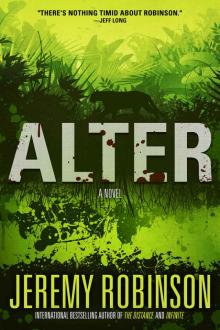 Alter
Alter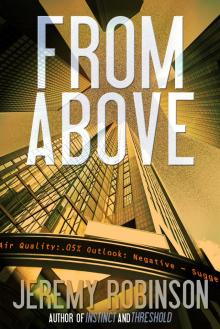 From Above - A Novella
From Above - A Novella Flux
Flux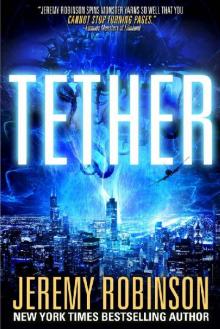 Tether
Tether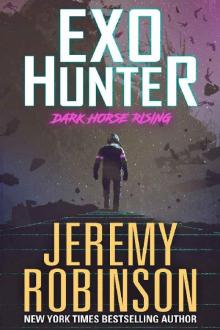 Exo-Hunter
Exo-Hunter Pulse
Pulse Cannibal
Cannibal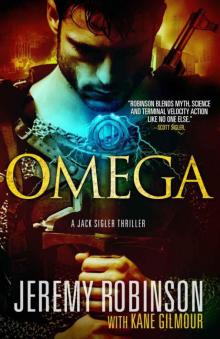 Omega: A Jack Sigler Thriller cta-5
Omega: A Jack Sigler Thriller cta-5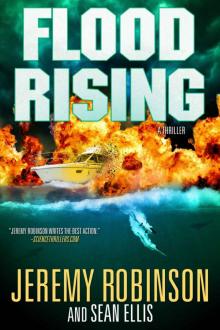 Flood Rising (A Jenna Flood Thriller)
Flood Rising (A Jenna Flood Thriller)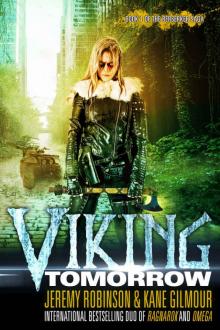 Viking Tomorrow
Viking Tomorrow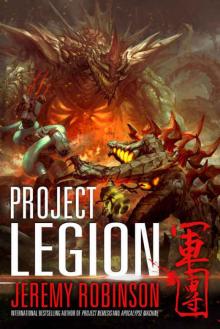 Project Legion (Nemesis Saga Book 5)
Project Legion (Nemesis Saga Book 5) BENEATH - A Novel
BENEATH - A Novel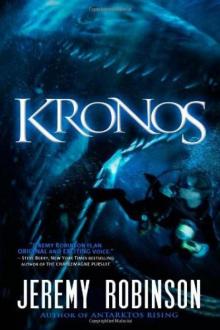 Kronos
Kronos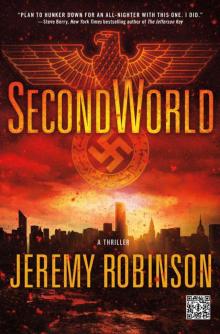 SecondWorld
SecondWorld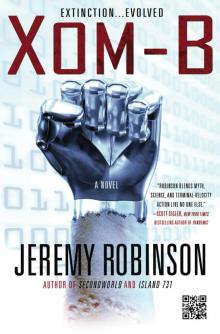 XOM-B
XOM-B Forbidden Island
Forbidden Island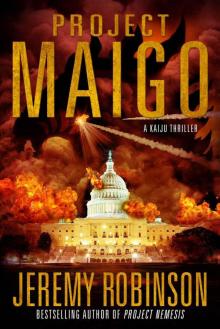 Project Maigo
Project Maigo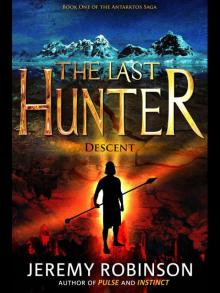 The Last Hunter - Descent (Book 1 of the Antarktos Saga)
The Last Hunter - Descent (Book 1 of the Antarktos Saga)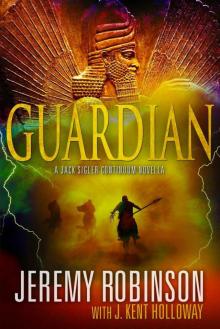 Jack Sigler Continuum 1: Guardian
Jack Sigler Continuum 1: Guardian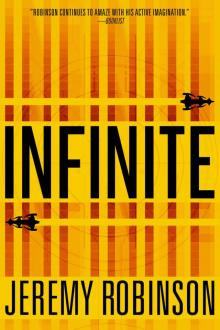 Infinite
Infinite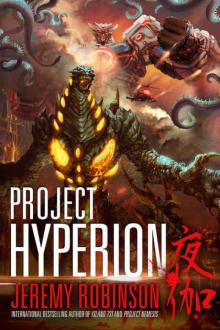 Project Hyperion
Project Hyperion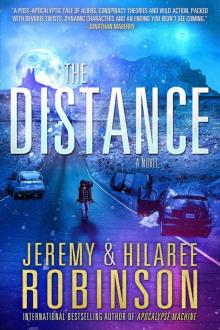 The Distance
The Distance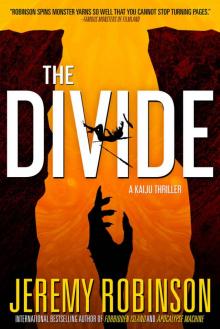 The Divide
The Divide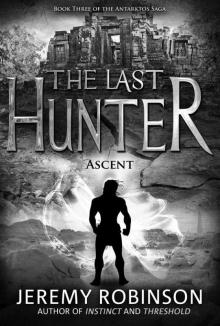 The Last Hunter - Ascent (Book 3 of the Antarktos Saga)
The Last Hunter - Ascent (Book 3 of the Antarktos Saga)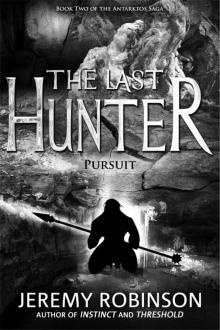 The Last Hunter - Pursuit (Book 2 of the Antarktos Saga)
The Last Hunter - Pursuit (Book 2 of the Antarktos Saga)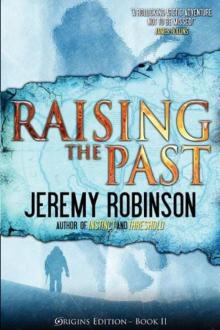 Raising the Past
Raising the Past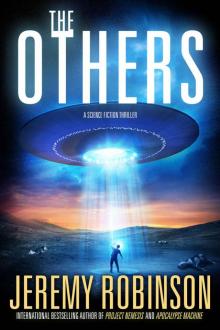 The Others
The Others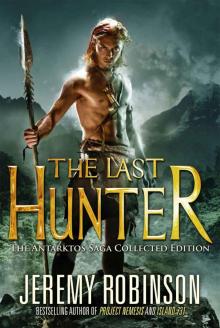 The Last Hunter - Collected Edition
The Last Hunter - Collected Edition Threshold
Threshold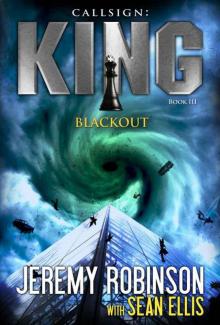 Blackout ck-3
Blackout ck-3 Antarktos Rising
Antarktos Rising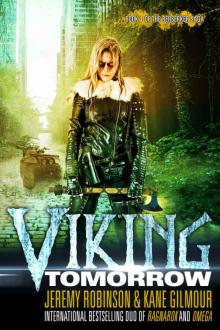 Viking Tomorrow (The Berserker Saga Book 1)
Viking Tomorrow (The Berserker Saga Book 1)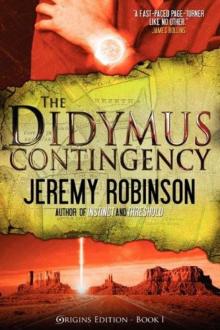 The Didymus Contingency
The Didymus Contingency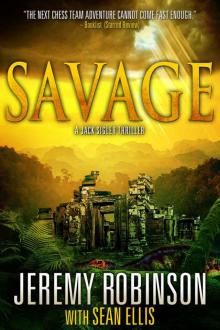 Savage (Jack Sigler / Chess Team)
Savage (Jack Sigler / Chess Team)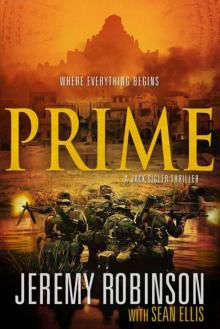 Prime
Prime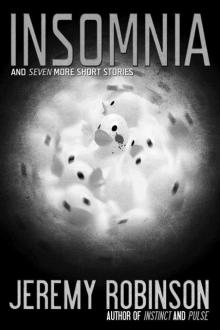 Insomnia and Seven More Short Stories
Insomnia and Seven More Short Stories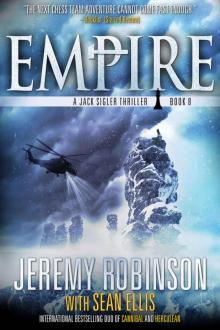 Empire (A Jack Sigler Thriller Book 8)
Empire (A Jack Sigler Thriller Book 8)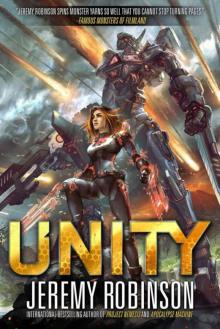 Unity
Unity Instinct
Instinct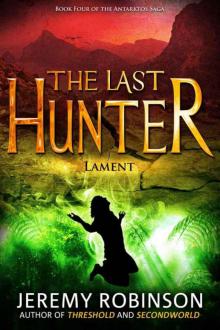 The Last Hunter - Lament (Book 4 of the Antarktos Saga)
The Last Hunter - Lament (Book 4 of the Antarktos Saga)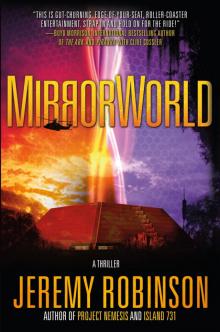 MirrorWorld
MirrorWorld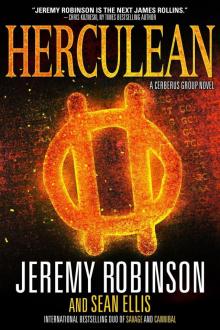 Herculean (Cerberus Group Book 1)
Herculean (Cerberus Group Book 1)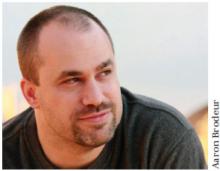 Island 731
Island 731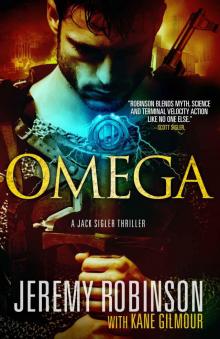 Omega: A Jack Sigler Thriller
Omega: A Jack Sigler Thriller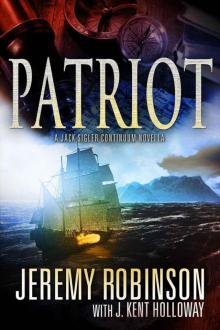 Patriot (A Jack Sigler Continuum Novella)
Patriot (A Jack Sigler Continuum Novella)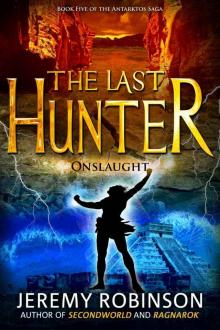 5 Onslaught
5 Onslaught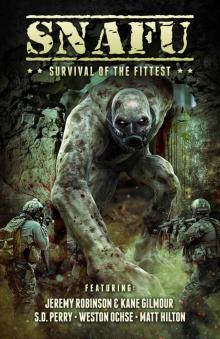 SNAFU: Survival of the Fittest
SNAFU: Survival of the Fittest Helios (Cerberus Group Book 2)
Helios (Cerberus Group Book 2)